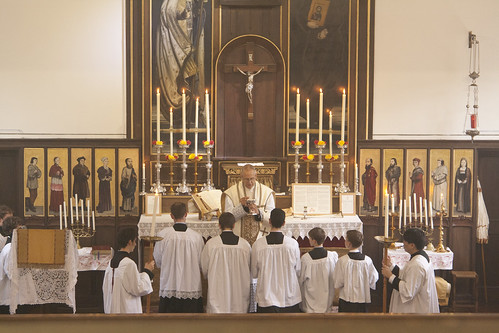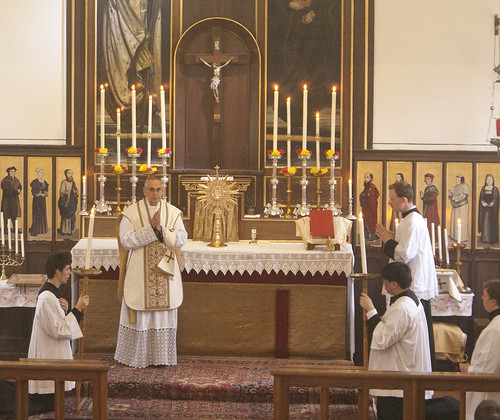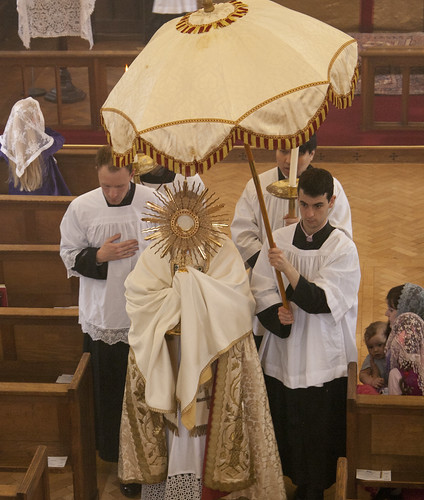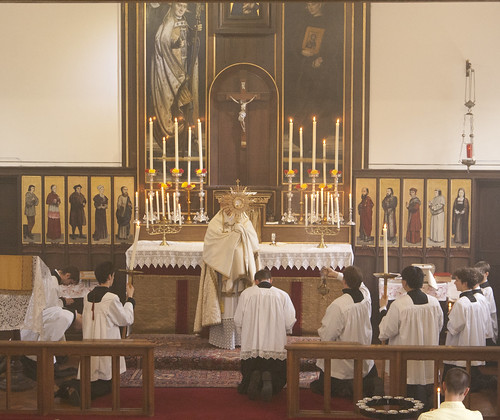Labels
- Bishops
- Chant
- Children
- Clerical abuse
- Conservative critics of the EF
- Correctio Filialis
- FIUV Position Papers
- Fashion
- Freemasonry
- Historical and Liturgical Issues
- Islam
- Liberal critics of the EF
- Marriage & Divorce
- Masculinity
- New Age
- Patriarchy
- Pilgrimages
- Pope Francis
- Pro-Life
- Reform of the Reform
- Young people
Wednesday, June 27, 2018
Cardinal Müller on the liberal agenda
These astonishing but perceptive words of Gerhard, Cardinal Müller, former Prefect of the Congregation for the Doctrine of the Faith, from an interview with Catholic World Report, deserve as wide an audience as possible.
They consider the secularization and de-Christianization of Europe as an irreversible development. For this reason the New Evangelization—the program of John Paul II and Benedict XVI—is in their view a battle against the objective course of history, resembling Don Quixote’s battle against the windmills. They are seeking for the Church a niche where it can survive in peace. Therefore all the doctrines of the faith that are opposed to the “mainstream,” the societal consensus, must be reformed.
One consequence of this is the demand for Holy Communion even for people without the Catholic faith and also for those Catholics who are not in a state of sanctifying grace. Also on the agenda are: a blessing for homosexual couples, intercommunion with Protestants, relativizing the indissolubility of sacramental marriage, the introduction of viri probati and with it the abolition of priestly celibacy, approval for sexual relations before and outside of marriage. These are their goals, and to reach them they are willing to accept even the division of the bishops’ conference.
The faithful who take Catholic doctrine seriously are branded as conservative and pushed out of the Church, and exposed to the defamation campaign of the liberal and anti-Catholic media.
It is important to recognise the shape of the liberal project.
1. It is not motivated in the first place by a rejection of the Faith. It is motivated by a reading of history which concludes that a restoration of Catholic culture is impossible, and that in order to survive the Church must find ways to accommodate herself to the hostile secular culture.
2. This process of adaptation, however, leads to a rejection of the Faith. Once the Real Presence, the historic understanding of sin and the priesthood, and the Indissolubility of Marriage have gone, it's not Catholicism any more. This is not consciously accepted by the liberal, however, who thinks he's rejected the chaff and kept the wheat.
3. Implementing the liberal strategy means dialling back any attempts at evangelisation which look as though they are in danger of being successful. It is not the tone or the liturgical preferences or the bad manners of the leaders or followers of this or that apostolate which is the problem. The problem is anything which draws attention to and makes attractive those aspect of the Faith which the liberal thinks should be jettisoned for the good of the Church.
This is a difficult point to grasp but it is important. The answer to the question 'is liberal Catholicism a diabolical conspiracy to destroy the Church?' is 'No': liberal Catholics are almost always sincere, often pious, frequently hard-working, with a serious analysis of the situation of the Church and the World which focuses on genuine, difficult realities about the current state of things.
The problem is that they strategy they have adopted, unlike traditional apostolic work, requires not just that they do things; it requires other people to stop doing things. This pushes them into a position in which they end up doing their utmost to shut down entirely orthodox and pastorally effective initiatives. Indeed, the more orthodox and the more effective, the more they must be shut down. And this looks quite remarkably like a diabolical conspiracy to destroy the Church.
Photos from Corpus Christi at SS Gregory & Augustine's, Oxford.
Support the work of the LMS by becoming an 'Anniversary Supporter'.
Subscribe to:
Post Comments (Atom)




To the 1st point, it seems to me that however rich, Catholic culture is secondary to the Faith. To aim at the restoration or accommodation or whatever of Catholic culture is accidental to salvation, which is the first concern - to make, and keep and confirm as many souls as possible in the state of grace. I sometimes feel that this distinction is not grasped clearly, and love for Catholic culture and customs becomes an end in itself, resembling as in a political philosophy or social movement. If we get too bogged down in 'culture war' types of effort we risk forgetting that we are exiles on earth and lose the acute sense of the one thing necessary.
ReplyDeleteDaniel, I respectfully completely disagree. As Aquinas says, man is a composite being, made up of body and soul. To be missing either part of that composition is in some real sense to not be fully human. Much like water cannot be water if it is missing the hydrogen or the oxygen. We are not angels and never will be. In fact our ultimate destiny is NOT some spiritual heaven but rather a New Earth where we again have our physical bodies. A Catholic Culture is a physical body that gives life and support to Catholic belief and doctrine. Just as it is obviously possible for the human spirit to live on beyond bodily death so Catholic Faith can live on without a Catholic Culture. But surely such a Faith is as ghostly and ineffectual as the appearance of human ghosts in the physical world. Your view seems distinctly anti-incarnational. If we are to cooperate with Our Lord in the salvation of others we must work, as He did, to save both Soul and Body.
ReplyDeleteThis is my first visit to this blog, a site devoted to the Traditional Roman Liturgy. It would seem that this is one of the strongest arguments for the TLM - it is a better composite. The body of ritual, language, prayers, etc, that make up the TLM are a body that gives better expression in the physical world of the spiritual reality of the Holy Sacrifice of the Mass.
PAX,
Matthew
This is an interesting assessment, but I'm wondering if there's any support for it. I have yet to encounter a person who out of love of the Church or the faith promotes "progressive" modernist ideas and then loses supernatural faith as a consequence. It seems to me the other way around, that the person starts with a lack of faith and then tries to re-shape the Church according to a personal agenda. I'm not sure which perspective is right, but I'm wondering what evidence there is either way.
ReplyDeleteCommunism seemed like a good idea, a movement with the way the world was going post-monarchy. What a complete disaster it turned out to be with misery for millions.The devil throws sand into the eyes of the faithful and sincerity/good intentions are not enough to stop him.
ReplyDelete